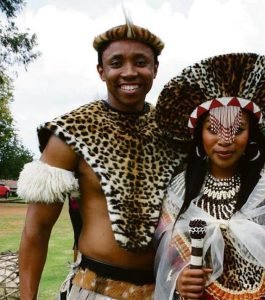Are you a fan of the arts and culture? The civilizations of Africa are among the most beautiful and fascinating that you will ever encounter anywhere on the planet.
Keeping that in mind, if you haven’t done any research on Zulu culture, you haven’t really explored African culture at all. These individuals will leave you enthralled and hoping that you could spend at least one day in their company.
The Zulu tribe refers to themselves as “People of Heavens,” which is a phrase that they have coined for themselves. What’s the story behind the name? The phrase AmaZulu literally translates as ‘People of Heaven,’ and the Zulu people, also known as AmaZulu, are known as ‘The People of Heaven.’
Their ancestral homeland, KwaZulu, is known as the ‘Place of Heaven.’ In terms of population, they are the most numerous ethnic group in South Africa, with an estimated 10 million people in KwaZulu-Natal.
Weddings – A wedding is referred to as an Umabo. It is customary for it to take place following a white wedding. A dowry ceremony (Lobola) is held prior to a wedding ceremony.
It is customary for the bride to bring groceries as gifts for her husband’s family during the Izibizo and Umbondo celebration.
To ensure that she was able to showcase her beauty on her wedding day, the Zulu girl who is the bride changed into several different outfits. More information about their weddings can be found in the recently published ‘Zulu Wedding Book’ by Dudu Busani.
The following are some of the more interesting things we’ve learned over the years about traditional Zulu weddings:
- The groom is traditionally required to pay a dowry (also known as lobola), which is represented by a number of cattle, the number of which is determined through a series of negotiations with the woman’s family. Fathers and uncles will arrive in their cars.
- For the most part, the quantity of cattle demanded as a dowry (also referred to as lobola) by the bride’s family would be negotiated throughout the engagement process. Traditionally, cattle were a source of financial security for the bride and any children she might have in the event her husband died. This is why fathers and uncles will do whatever they can to raise the price.
- Zulu brides change their outfits at least three times on their wedding day to showcase their beauty to their future spouses in a variety of styles and colors.
- The actual wedding ceremony is held at a local church, with the reception taking place at the home of the groom afterward. A wide wedding gown is often worn during the ceremony, but it is almost always replaced with traditional Zulu garb when the newlyweds arrive at their reception.
- As part of the wedding ceremony, gifts are exchanged between the two families. As a wedding gift, blankets are most commonly given by the bride to her new family, who will drape them over themselves in front of their guests to demonstrate their approval of the union.
- One of the highlights of a traditional Zulu wedding is the competitive dancing and singing between the bride and groom’s families, which is one of the most exciting parts of the celebration. In Zulu culture, this ritual antagonism signifies the point at which the bride separates herself from her own ancestral line and becomes a member of her husband’s family.




